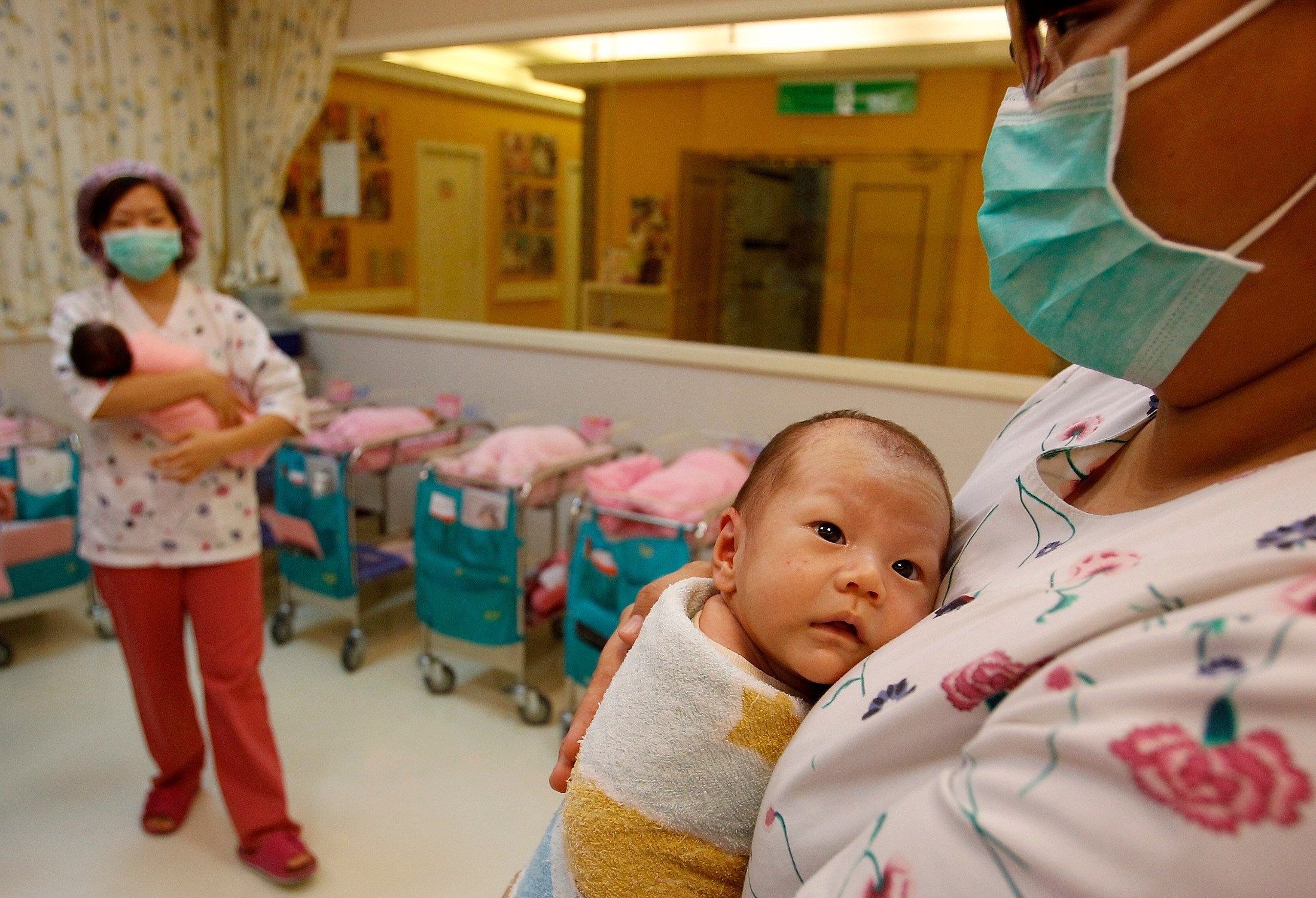Gendercide: The War Feminists Seemingly Refuse to Fight
Ericka Andersen /
With the anniversary of Roe v. Wade this week — and as pro-life demonstrators assemble across the nation in defense of life — feminists should take note: Although women may have gained equality in many areas over the past decades, they haven’t gained it in the womb.
While male unborn babies in Asia are often desired, prized, and esteemed, female unborn babies are often dreaded, despised and, increasingly, prohibited from even entering the world.
If 160 million girls turned up missing tomorrow—eliminated solely for being female—wouldn’t a cry of outrage ensue? Feminists and women’s rights groups would be utterly beside themselves—as they should be.
But the truth is, there are 160 million women missing from the world today, most notably in Asia. In what some call “gendercide,” the practice of sex-selective abortion is decimating the female population in some countries. Sometimes, pregnant women are forced into the procedure against their will.
The same American feminists that expound upon women’s rights in other areas seemingly refuse to join calls to outlaw sex-selective abortion.
In fact, feminists have been among those advocating international population control measures through abortion for decades. In Unnatural Selection, a book Heritage reported on in June, Mara Hvistendahl covers the devastating effects of worldwide gendercide and details how the West has played a part in it.
In a Wall Street Journal review, Jonathon Last highlighted Hvistendahl’s research on the ways Western organizations like the Ford Foundation and Planned Parenthood were originally promoters of sex-selective abortion for population control purposes. Last wrote:
In 1976, for instance, the medical director of the International Planned Parenthood Federation, Malcom Potts, wrote that, when it came to developing nations, abortion was even better than birth control: “Early abortion is safe, effective, cheap and potentially the easiest method to administer.”
Such a thought process has lead to this multimillion-person devastation.
In China, there are now 120 male children born for every 100 females—a far cry from the natural balance of 105 to 100. In that country, like many others dealing with skewed sex ratios, researchers suggest the paucity of females is beginning to drive demand for trafficked brides and increased prostitution.
And while China may be most infamous for gendercide, don’t let the headlines fool you: It’s happening in America, too.
Heritage’s Jennifer Marshall and Sarah Torre recently reported on developments in gendercide in the United States, and the numbers are telling. They wrote:
In a 2008 study, Columbia University researchers found that among children born in America to Chinese, Korean and Indian parents, a first-born girl tends to skew the sex ratio of the second or third birth. For second births the male-female ratio was 117 to 100, the report said, and for third births 151 to 100 if the couple already had two girls.
Marshall and Torre’s report also delivered a nearly unbelievable quote from Steven W. Mosher, president of the Population Research Institute, who said that before widespread discussion of the effects of gendercide on gender ratios, “it was not unusual to find abortionists advertising the availability of sex-selective abortions in newspapers such as The New York Times.”
Why aren’t women’s rights groups stepping up for missing women in places like the country of Georgia, where Hvistendahl said that some women have had four abortions in an effort to birth a boy instead of a girl?
Barbara Kay, a National Post writer, may have said it best in an online discussion of this topic:
[Feminists] seem to feel that any restriction for even the best of female interests just has to be the thin end of a wedge leading to coat-hanger abortions. They are truly letting down the side on this one.
Today, the world is missing 160 million would-be doctors, prime ministers, teachers, mothers, scientists, humanitarians, and more.
Today, there are fewer women to advocate for the rights of their sisters in places like Saudi Arabia and Iran, where oppression suffocates the creativity and beauty of so many.
Today, thousands of unborn girls are unheard, unnamed, and completely disregarded simply because they are female.
As Marshall and Torre so elegantly said, “If there is equality between women and men, it’s rooted in our nature and purpose as human beings. Denying that fundamental dignity inherent in all human life destroys the very basis of equality.” It’s past time that feminist began standing up for the equality of the world’s most truly vulnerable girls.

